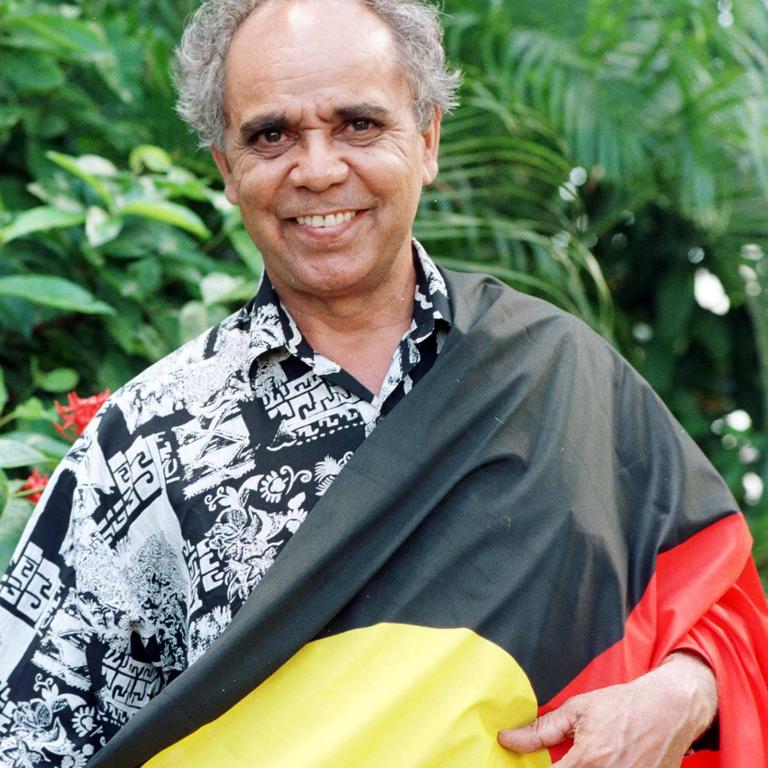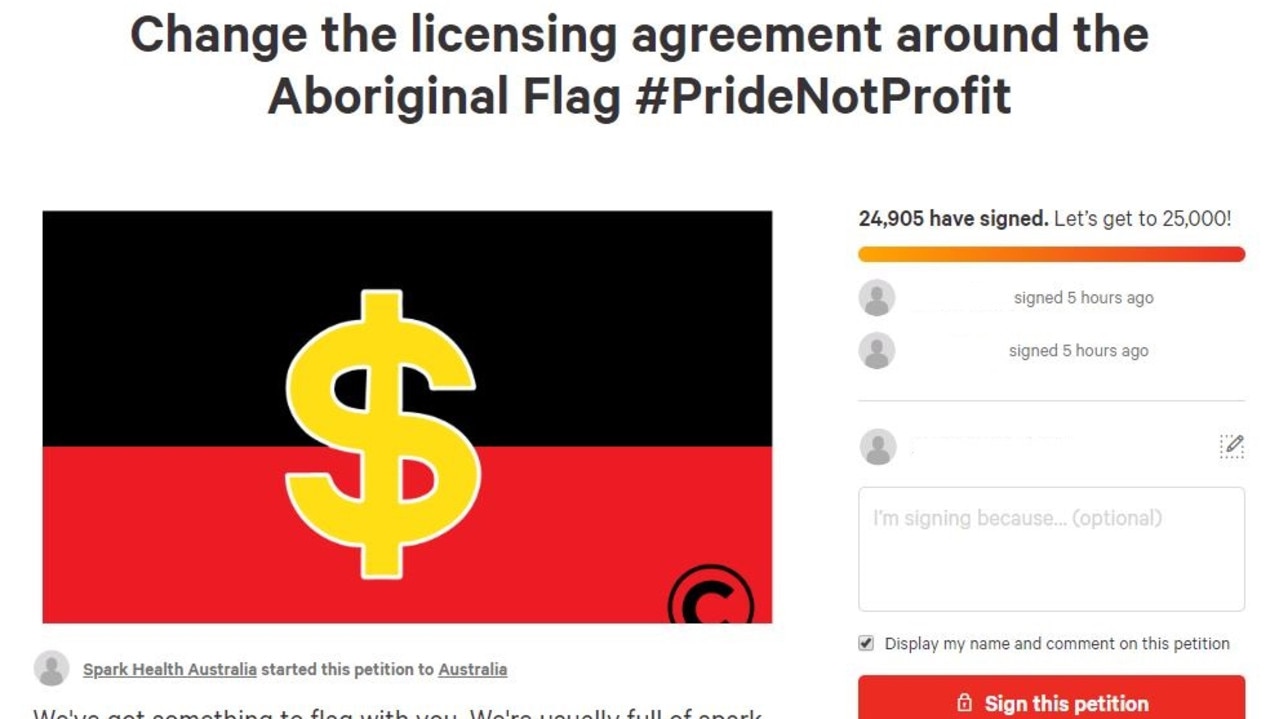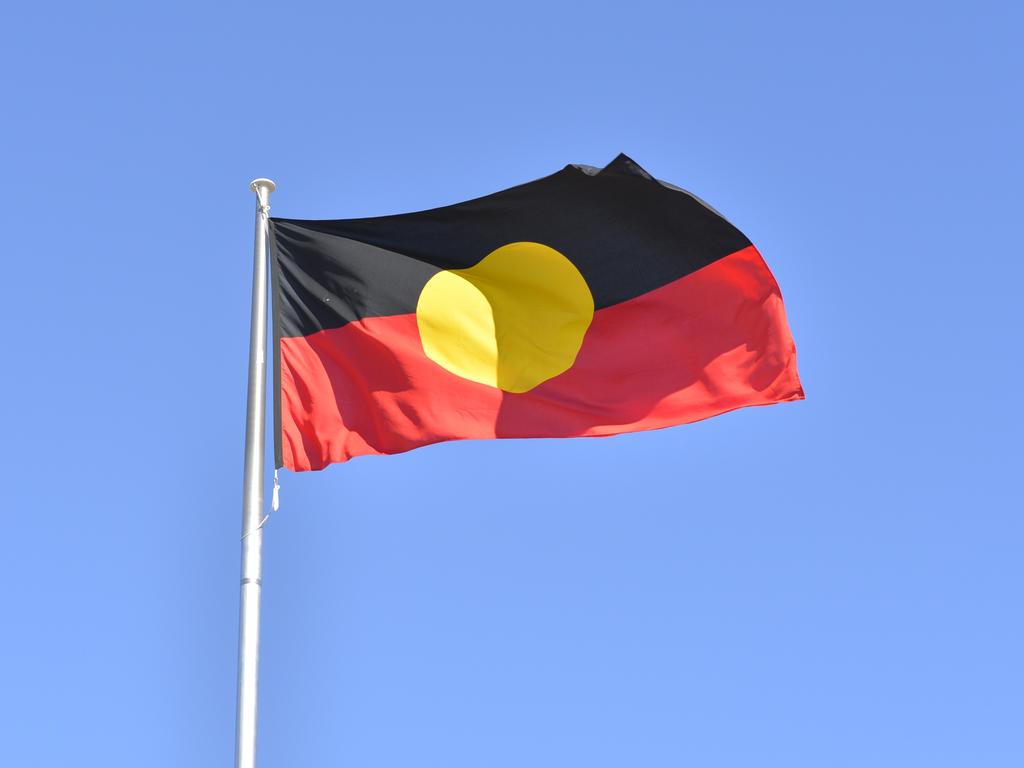Indigenous companies told to stop using the Aboriginal flag over copyright issues
A number of indigenous-owned companies have been threatened with legal action for reproducing the Aboriginal flag on clothing.
A non-indigenous company has ordered Aboriginal-owned businesses and the AFL to stop using the Aboriginal flag on clothing.
WAM Clothing was given exclusive rights to reproduce the Aboriginal flag on clothing by Luritja artist Harold Thomas who designed the flag in 1971.
The company was founded by non-indigenous owners Semele Moore and Been Wooster in 2018.
Since acquiring exclusive clothing licence for the flag, WAM Clothing has reportedly sent several “cease and desist” notices to Aboriginal companies that use the flag on clothes, along with the AFL, which uses images of the flag on club jerseys for indigenous round.

Spark Health, an Aboriginal-owned and run business that focuses on indigenous health and welfare, is one of the companies threatened with legal action.
It uses the Aboriginal flag on its Clothing The Gap products, which help raise money to go back into the Aboriginal community.
After receiving the cease and desist notice from WAM Clothing, Spark Health started a Change.org petition pushing for the licensing agreement to be changed.
“This is not a question of who owns copyright of the flag. This is a question of control,” the petition reads.
“Should WAM Clothing, a non-indigenous business, hold the monopoly in a market to profit off Aboriginal people’s identity and love for ‘their’ flag?
“We believe that this control of the market by a non-indigenous business has to stop.”
Almost 25,000 people have signed the petition since it was created five days ago.

However, WAM Clothing claimed it had reached out to Spark Health and offered to discuss a resolution but received no reply.
“Regarding Spark Health Pty Ltd/Clothing the Gap, they have not taken up WAM Clothing’s invitation to discuss the correspondence or options available,” the company said in a statement.
“It makes it difficult to resolve concerns or reach a resolution when organisations such as Spark Health Pty Ltd/Clothing the Gap do not contact us to discuss.”
WAM Clothing also confirmed it was in discussions with the NRL and AFL about the use of the flag on clothing.
The company noted before it entered into the licence agreement with Mr Thomas, he was not receiving recognition or royalties for the majority of companies reproducing the Aboriginal flag.
“We’re pleased that Harold is now starting to receive his rightful recognition and subsequently royalties for his copyright,” the statement read.

“WAM Clothing has obligations under its licence agreement to enforce Harold Thomas’ copyright, which includes issuing cease and desist notices.”
The company also included a statement attributed to Mr Thomas.
“It’s taken many years to find the appropriate Australian company that respects and honours the Aboriginal flag meaning and copyright, and that is WAM Clothing,” the flag designer said.
“The Aboriginal flag is doing its job as it was intended to do, to bring unity and pride to all Aboriginals.
“At times we get the few who snigger and are disenchanted. I can’t satisfy all black people who wish to break up the Aboriginal unification.”
Mr Thomas has licensing agreements with just two other companies — one to reproduce the flags and another to reproduce the image on objects.




